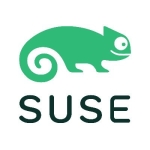What is most valuable?
Reliability, safety, support offered, speed, endurance. Overall, if I’m forced to make an automotive industry comparison, from my perspective Oracle Solaris is the “Volvo” of operating systems.
Reliability – because referenced operating system was always trustful to host assigned applications, in the most desirable way
Safety – penetration test performed against related platforms never get the chance to pick any vulnerabilities. Attempts were logged on system log, daily check scripts pick those and send to monitoring team, investigations was performed to pinpoint the offending host. All the times the host was the one used to perform penetration testing. Other layers of infrastructure security prevented the attackers to rich the Solaris environments, but never heard about proper configured OS like this to get on its knees due to such.
Support Offered – Oracle SPARC platforms come with free support for Solaris operating system, and in contrast with the saying “there is no free lunch”, the support offered is at the highest standards. In some of the rare occasion when high severity incidents ( with root cause proven to be triggered from application side), the customer on organized conference requested a Service request to be opened with Oracle, so the issue to be cornered from both directions. I can say that have nevered encountered a new or known bug on OS side during those experiences.
Speed – Living the hardware and storage capabilities out of the equation, the responsiveness and agility of Solaris operating system is one in the top of my preferences.
Endurance - Years of uptime (except planned downtime related to recommended patch set applying) say it all.
After all of the above, hope that the comparison from automotive industry will not be considered forced at all.
How has it helped my organization?
Using Oracle Solaris OS in conjunction with Oracle Solaris Cluster, we are able to offer our organization full OS support so they can achieve the best possible Oracle database performance, security and failover capabilities. This way, their business doesn’t suffer due to unexpected and unplanned IT infrastructure-related downtime.
What needs improvement?
Since Solaris Volume Manager is the obvious choice for a shared filesystem, I would love to see improvements in SVM so that filesystems can be increased or migrated without downtime for the environment - in a similar way that ZFS is capable of.
Offering more GUI applications might help adoption of Oracle Solaris by professionals coming from the Windows “world”.
Also, adaptation of behavior of commands similar to those from Linux would add familiarity for Linux system administrators aiming to use Oracle Solaris as well. (E.g., in Linux, the ifconfig command with no parameters returns the output for all interfaces. In Oracle Solaris, it causes an error and usage help).
For how long have I used the solution?
I have used it for 3.5 years.
What was my experience with deployment of the solution?
Encountered issues were back in the time when not enough experience was available for related OS, and some due to bugs that were fixed by patches released.
How are customer service and technical support?
I will rate technical support as excellent.
Which solution did I use previously and why did I switch?
IBM AIX was also considered, but x86 platform support from Oracle Solaris (for laboratory, test, DEV and QaS environments) added an advantage that leaned the scales toward Solaris. Proprietary hardware came with an added list of tasks you need to consider and be aware of during live use.
How was the initial setup?
The initial migration project came with lots of organizational challenges, but from a technical perspective, the well-organized “My Oracle Support” and attached community provided the needed answers to go along with a successful pilot environment. From that point on, we needed only to be patient, trigger and organize interactions between various teams, and solve performance issues related to layers other than the OS.
What about the implementation team?
There was an in-house implementation. My advice is to boldly adapt Oracle Solaris OS if the cost fits the organization budget, because this will save lots of future costs related to fixing issues and malfunctions. During implementation, adopters can count on professional support from the vendor using the “My Oracle Support” tool.
What was our ROI?
ROI, pricing and licensing are variables in an equation that changes from one case to the other. In my case, I wasn’t involved in the accounting part of this; therefore, I cannot provide more details.
What other advice do I have?
Before adopting Oracle Solaris, extensive pre-testing is needed in order to gain the necessary experience. Ideally, certification on Oracle Solaris for related IT team members is desirable.
Disclosure: My company does not have a business relationship with this vendor other than being a customer.












Great Review !!! Suk Kim , congrats